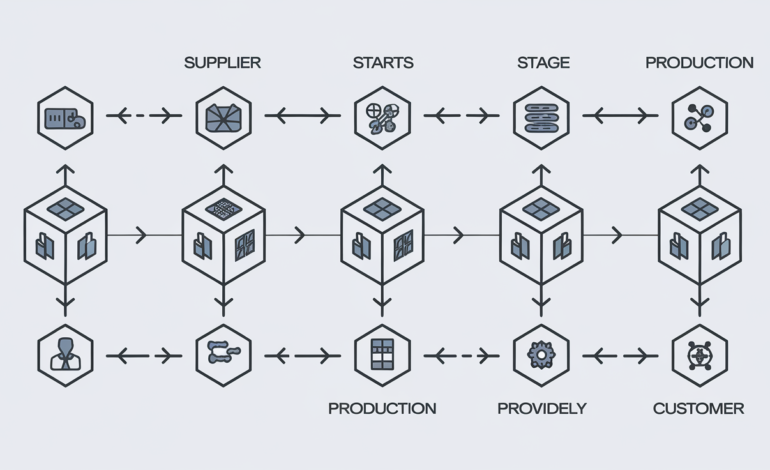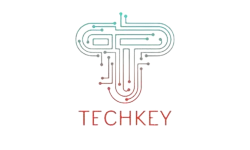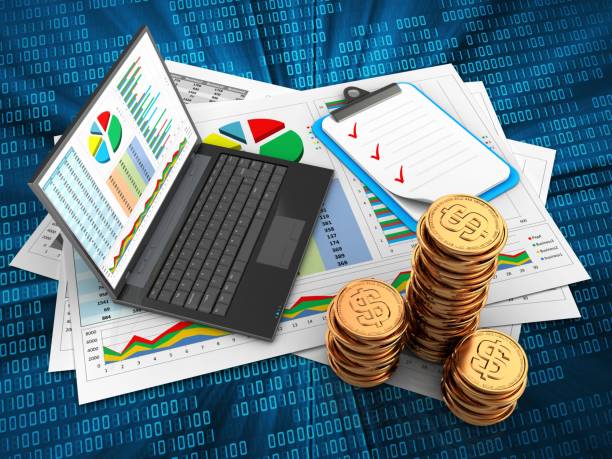How Blockchain Can Transform Your Supply Chain Management

The advent of blockchain technology has truly revolutionized the supply chain in terms of ensuring greater visibility, security, and efficiency. Transparency in blockchain technology will also be discussed, i.e., how actually blockchain is optimizing supply chains for smarter operations. Insights into benefits and real-life usage will facilitate link-up understanding regarding why blockchain is the future of supply chain management. Continue reading to learn more.
Picture a world where your supply chain actually functioned like clockwork–transparent, secure, and efficient. No delays, no misunderstanding; nothing would be lost. Sounds like a fantasy, doesn’t it? Well, that’s the dream that blockchain technology for supply chains is turning into reality. It is transforming the entire business model of how businesses handle logistics and operations. And now, let’s break down everything and see why incorporating blockchain digital transformation services in your supply chain would be the wisest decision you would ever make.
Why It’s Time for a Supply Chain Transformation
Today, there are a lot of hurdles in supply chains. Ever had missing shipments, delayed delivery, or even something that appeared on the shelf but was a counterfeit? Well, you are definitely not alone. Such problems have all been caused by a lack of transparency in addition to obsolete systems and data silos. Enter, the game-changing technology called Blockchain in supply chain management.
Blockchain is not yet another hype – it is a decentralized, tamper-proof digital ledger for capturing secure transactions. In terms of supply chain management software solutions, it means that every track of your product is known-from raw materials to the customer’s hands.
What Blockchain Brings to the Table
Here is how blockchain-based supply chain management software will transform your work:
- Enhanced Transparency:
Blockchain drafts an unaltered document of transactions on real-time data accessible to everyone – manufacturers, suppliers, and distributors.
- Improved Security:
Say goodbye to high data breaches and fraud. Transforming supply chain with blockchain means encrypting each and every piece of information, allowing only authorized parties to see the info.
- Streamlined Operations:
Sick of paper trails and reconciliations? Blockchain automates all of that, saving time and reducing the potential for error.
- Traceability:
Blockchain is effective in tracing the origin of products, and their journey. Very important in areas such as food and pharmaceuticals, where safety and quality in the end-to-end processes are paramount.
Practical Applications of Blockchain within Supply Chains
Let’s see how it is applied:
- Food Safety:
Imagine an outbreak of a health scare from a bad batch of contaminated product. Because of the power of blockchain, you can find the source of the contamination quickly, remove affected products from the shelf, and minimize risks and damages. - Luxury Goods Authentication:
Luxury brands have had a huge business in the counterfeiting market. Customers can track every detail of the supply chain to ascertain the authenticity of their purchases using blockchain.
- Efficient Logistics:
Logistics providers could find that clearing customs and reconciling invoices becomes simpler using blockchains – the nirvana of all logistics management solutions.
- Ethical Sourcing:
Just about everyone will tell you that ethical sourcing is the newest demand that consumers are making today. Know that your raw materials are sourced responsibly with the help of blockchain, which provides the ultimate visibility to build trust.
Why Business Needs Blockchain in Supply Chains
Blockchain for supply chain optimization is the future. Here’s what it offers:
- Improved Customer Experience:
With supply chain optimization through blockchain, customers can see their orders in real-time. Such transparency builds confidence and loyalty.
- Cost reduction:
Eventually, the savings will return to the company as a result of using blockchain, which will reduce the inefficiencies, errors, and fraud associated with transactions.
- Regulatory Compliance:
Blockchain makes it easier to store and share accurate, up-to-date information, which improves the ability to meet regulatory requirements for compliance.
- Innovate at Scale:
Companies that provide supply chain software development services are using blockchain to create innovative cutting-edge solutions which will be customized for specific business needs.
Teaming Up with Experts
It must sound very scary and daunting to adopt blockchain in your supply chain, but on the other hand, you aren’t alone in this. Working alongside a software product engineering company gives you that edge-for customized solutions to your operations.
These companies will even offer software product engineering services that ensure easy integration into existing systems. The partner you choose can make all the difference- contacting them for digital transformation solutions or technology consulting solutions.
The Backbone of Digital Transformation: Blockchain
Blockchain is one of the most important services that fall under digital transformation. By integrating this technology, you are not only upgrading your supply chain, but also preparing your business for the future.
Consider the integration of blockchain with Artificial Intelligence, the internet of things, or some large data analytics. Collectively, they will bring a supply chain that is not just reactive but predictive. That’s the essence of digital transformation in supply chain management.
Future Trends in Blockchain
With the changes that blockchain keeps on undergoing, this implies that the future of supply chain management is totally reliant on such. A topic of interest in the coming years is smart contracts which are self-executing agreements.
In fact, by removing the need for intermediaries to facilitate transactions, smart contracts make possible automation payment settlements, approvals, and many other transaction components that fully eliminate process delays and administrative inefficiencies.
It could even include decentralized finance to further improve the efficiency of real-time settlement of finance risks along the supply chain. Their thrust focuses more on sustainability. Amongst these is the possibility of tracking the carbon footprints and verifying sustainability claims to help customers achieve environmental objectives and compliance with green regulations.
Taken together, this further establishes blockchain as the solution for designing supply chains that are efficient, ethical, and ready for the future.
Final Thoughts
Blockchain will become the lifeblood of future businesses. It is recognized as an important source of security, transparency, and accountability in cutting-edge supply chain solutions across the globe.
Long-lasting business success and optimized supply chains is what you achieve by working with the best supply chain software development company and embracing solutions for digital transformations.
FAQs
How does blockchain technology enhance supply chain efficiency?
The application of blockchain technology greatly enhances the efficiency of the supply chain due to its unique real-time tracking of goods, streamlining automated processes such as smart contracts, and ensuring data sharing across stakeholders.
What are the benefits of using blockchain in supply chain management?
Enhancing visibility and security of data, reducing fraud incidence, and adding collaborative improvements are demonstrated by blockchain. It further simplifies the audits, thus giving the chain proper accountability.
How can blockchain streamline global supply chains?
Basically, what blockchain can provide is making the entire supply chain process a little simpler. All these things are; from database standardization processing to workflow automation right down to end-to-end visibility, which would do away with overheads and build trust with international trading partners.








